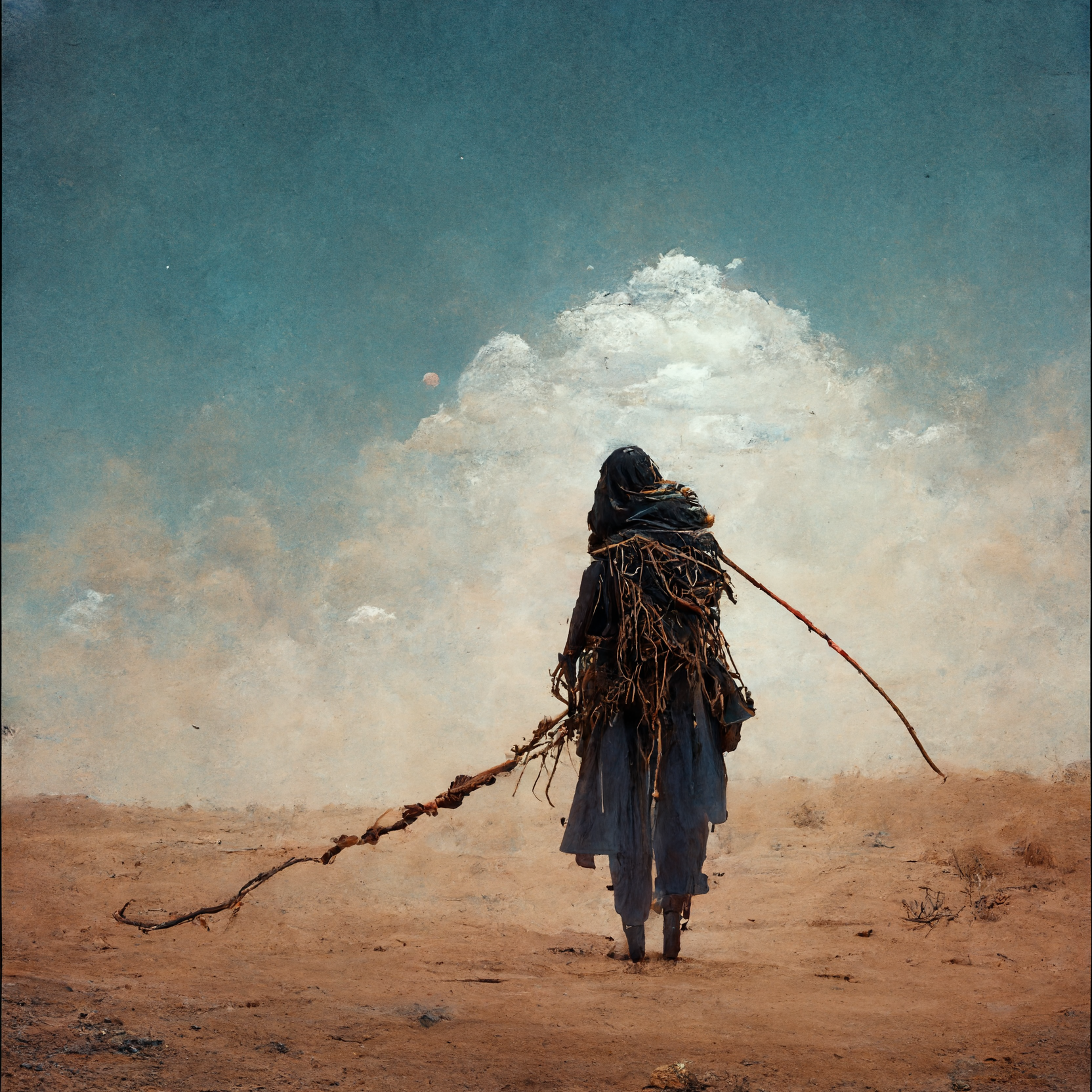Awry

Sad world. We ought not to change that. It was never our fight. So why are we armed to the teeth, hiding in pits behind the barricades anticipating a tragic victory?
Dying world. There’s no stopping that. And we’re to follow. So why are we breaking bones only to cling to the falling crag?
Unhappy folk. Accumulated worth. And unhappy still we are.
One scout. No sign of Man. No sight of prey. No means of victory. “It’s the wrong way!” — He reported. Yet still in the pits we lay, and to our lie resorted.
One soul. One night. The crag shattered. His grip, light. “My time to go, alright!” — He cried. It was never his fight. He died. We’re to follow. Now that we realised. Is it in hindsight?
More dead. More lies. Unhappy folk. Tormented cries. “We pray to die!” — Said the old. Unhappy folk. Now realised. Time, wasted. Death is nigh. The relief we couldn’t buy. For in the trenches we are awry.
Lo! Indeed the world is cursed. What is in it is cursed, except for remembrance of Allah, what is conducive to that, those who acquired knowledge, and those who are acquiring it. Prophet Muhammad (ﷺ)
Such there is Night، not Night as ours—Unhappy Folk
— J.R.R. Tolkien.
The Unhappy Folk: unhappyfolk.org
Telegram: unhappyfolk.t.me
Mail: msg@unhappyfolk.org
